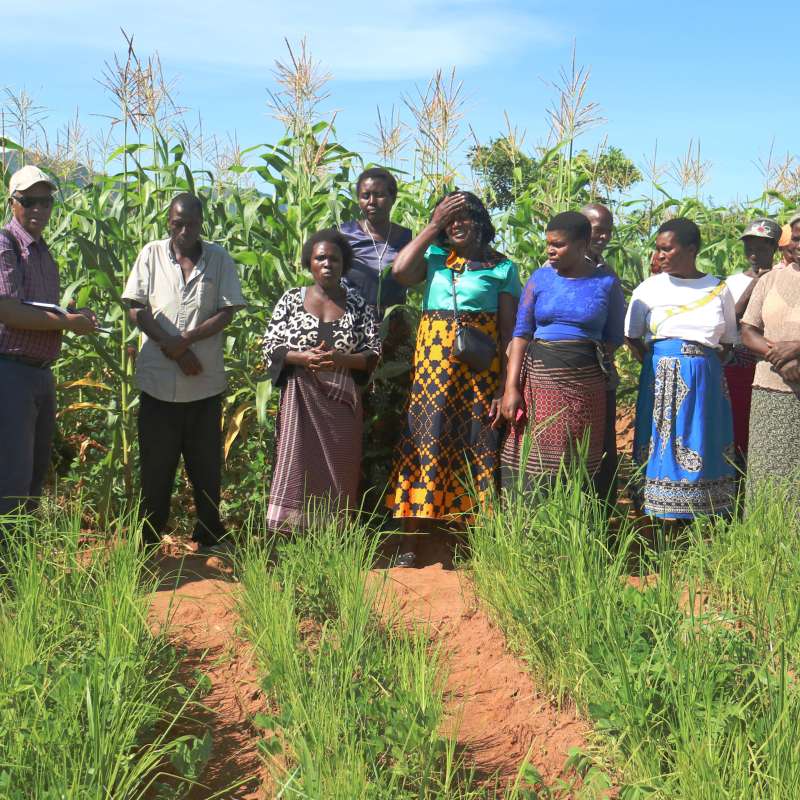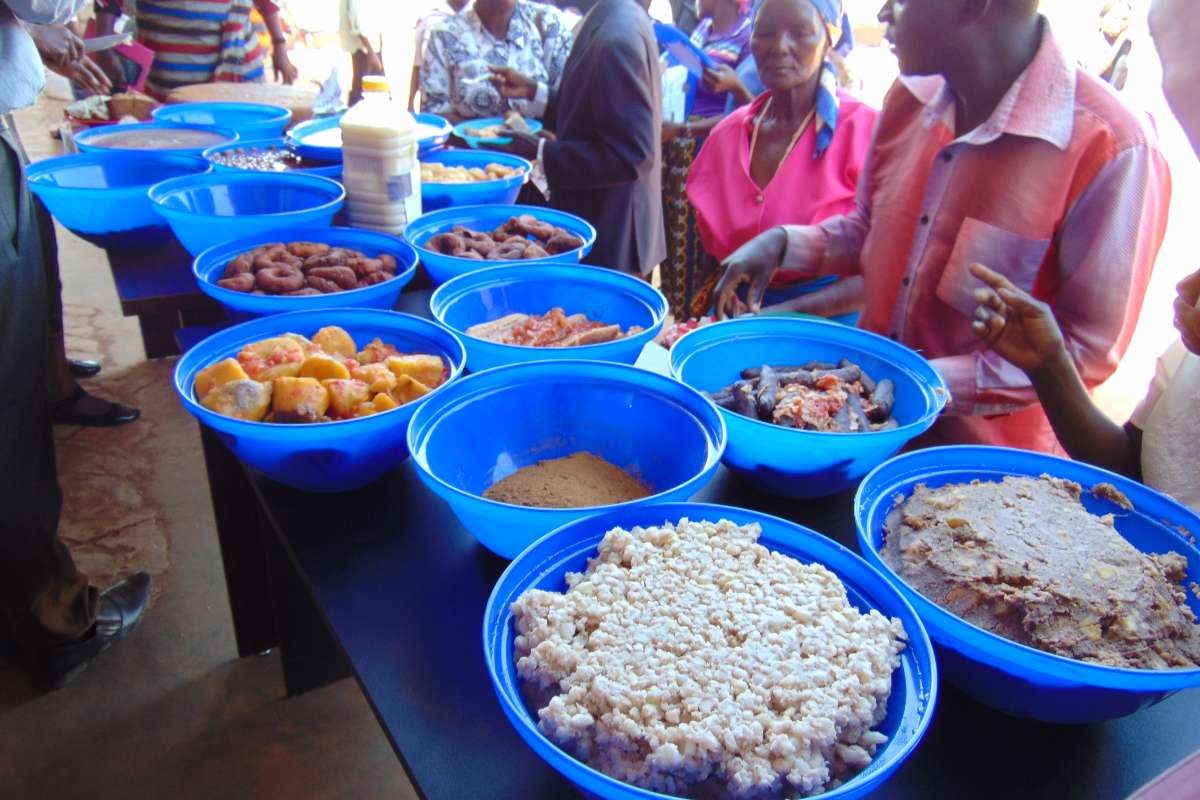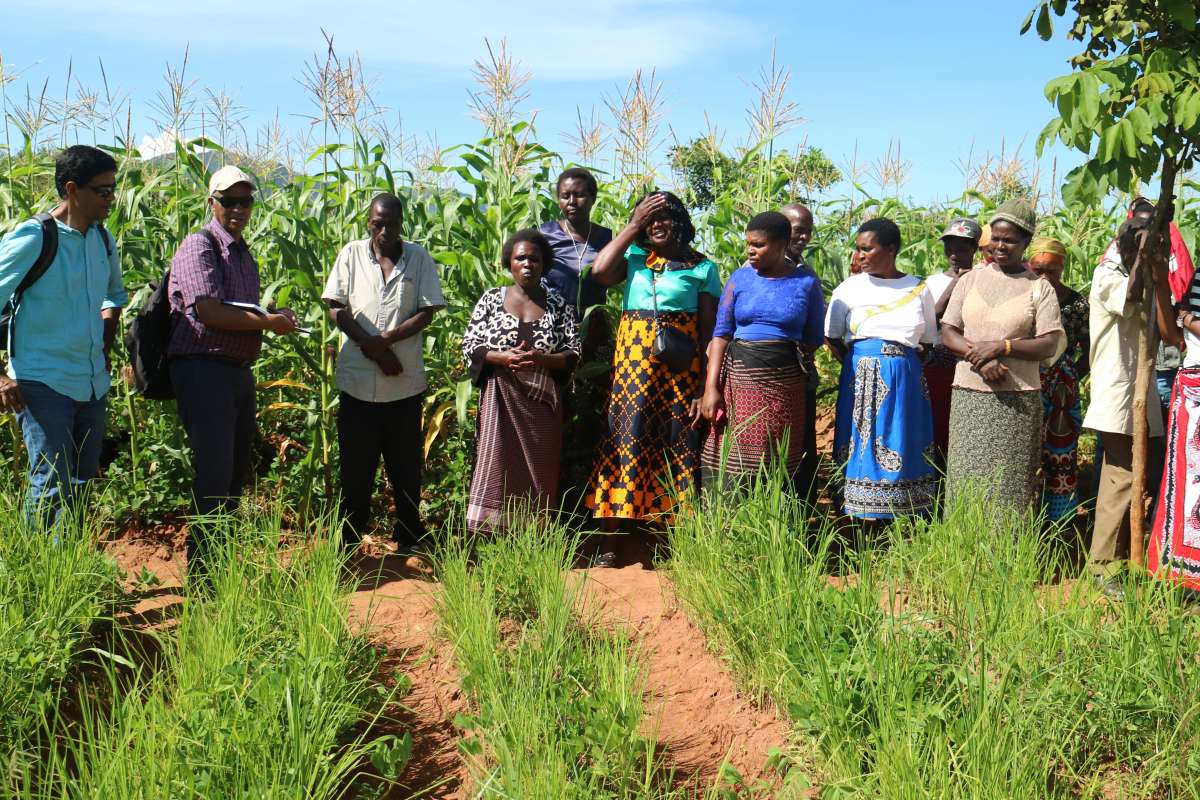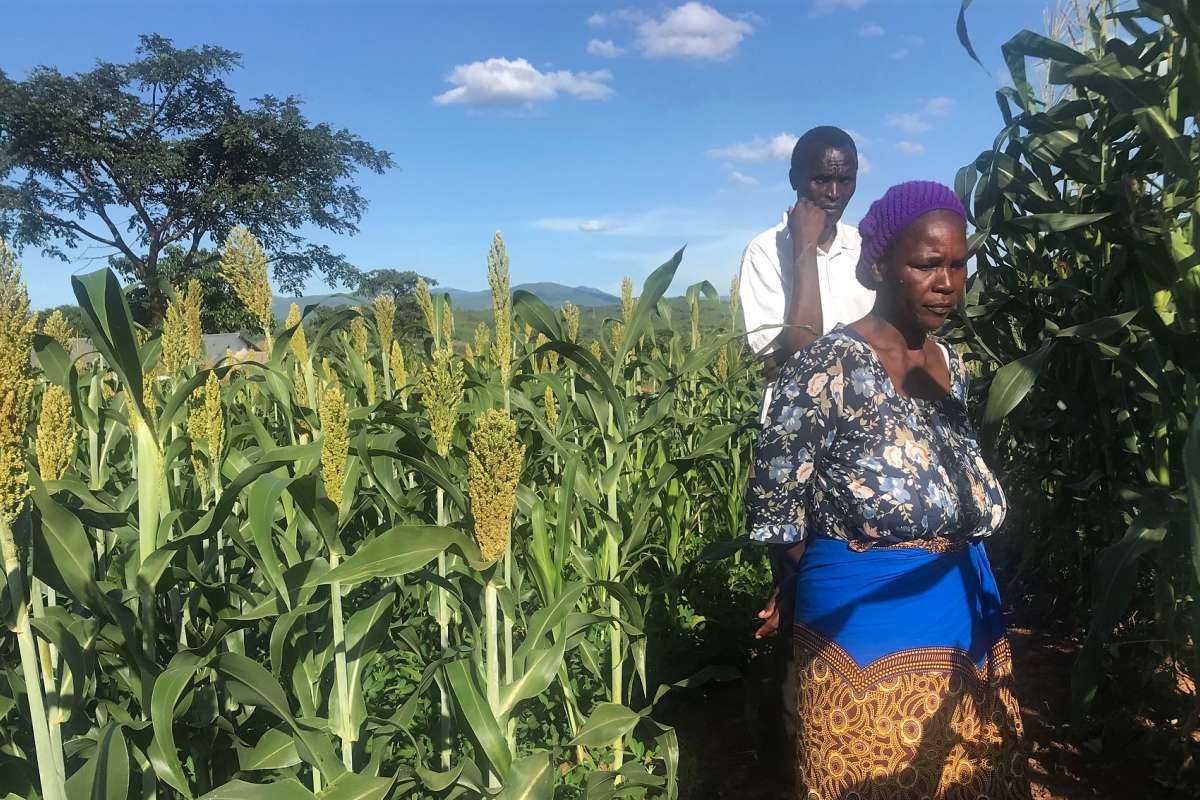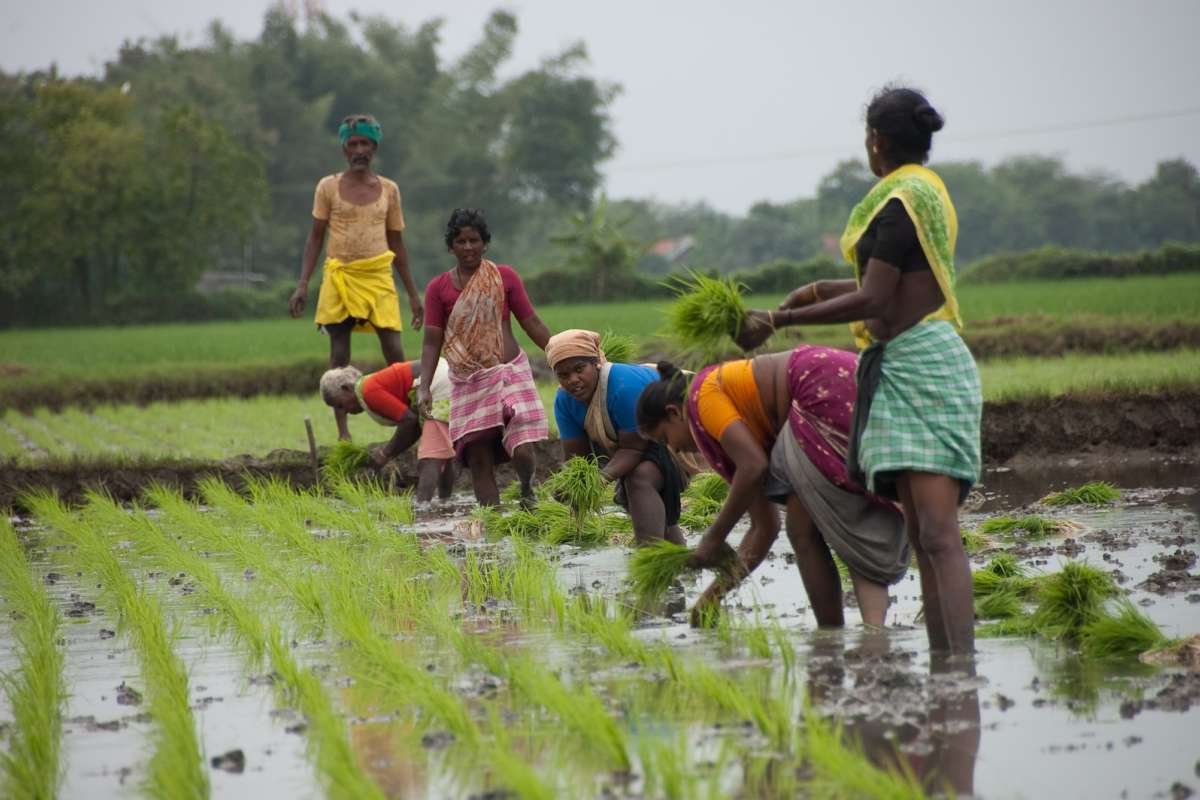A climate-smart success story for African agriculture
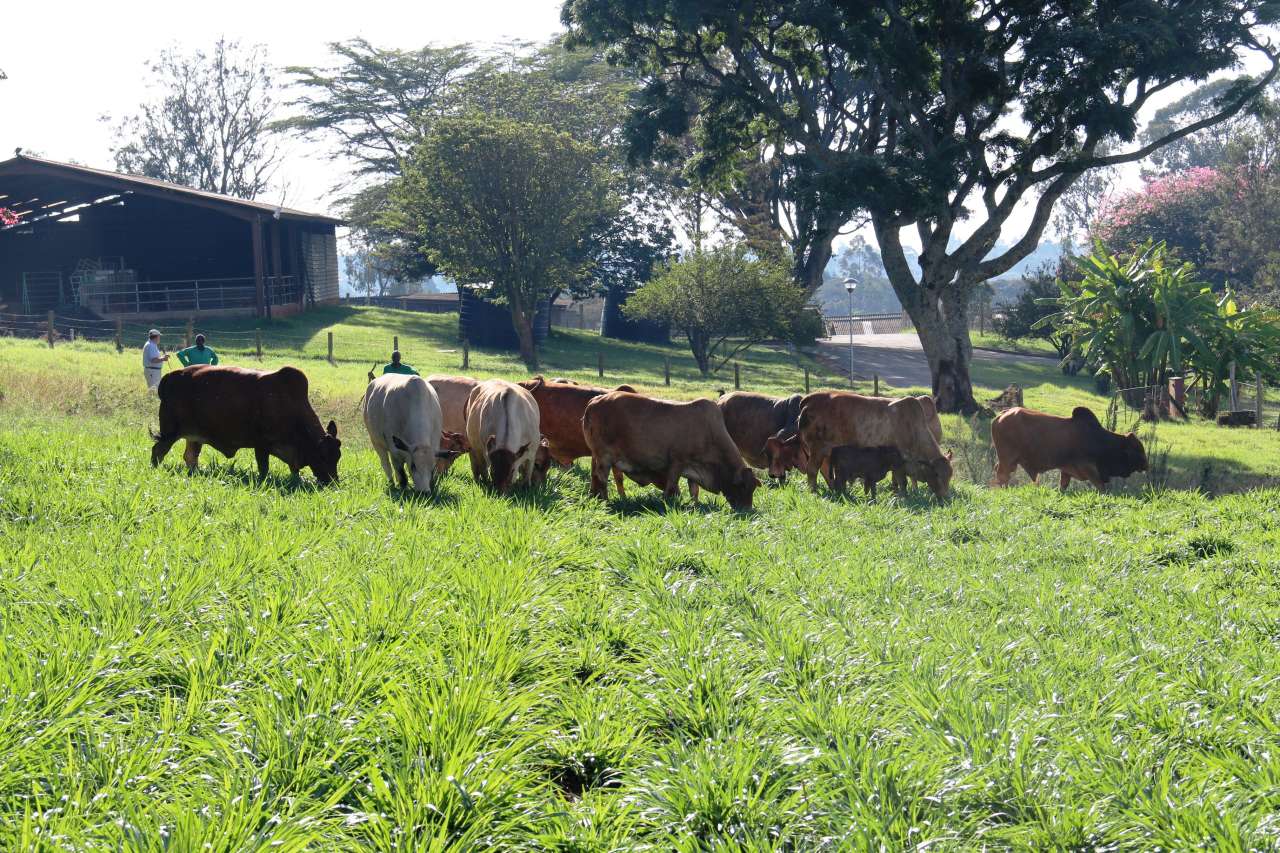
Thanks to InnovAfrica, smallholders who have adopted diverse maize-legume and Brachiaria fodder grass production are now experiencing higher yields. Photo: BecA-ILRI
InnovAfrica has taken an innovative and integrated approach to improve the food and nutrition security for thousands of smallholders in six African countries.
Despite efforts made in agricultural research and extension in the past, food and nutrition security remains a major challenge in Africa. This is, among other things, due to inefficient implementation and exchange of technologies and knowledge to end users along with limited access to markets.
By actively involving stakeholders and integrating relevant agri-food systems with appropriate institutional and extension services, the NIBIO-coordinated EU-Africa H2020 InnovAfrica project has contributed to improved food and nutrition security for thousands of smallholders in six Sub-Saharan African countries. Among other things, milk production has increased by 7-40% in certain InnovAfrica case study areas as a result of better and more fodder, i.e., Brachiaria grass. Subsequently, milk consumption has increased in these areas by 5,7%, providing an overall better nutritional status and increased income for the farmers.
Earlier this week, more than 100 participants from 20 countries participated in InnovAfrica’s final conference, held digitally from different locations in Europe and Africa. Here, the project’s key outcomes and impacts were presented, along with risks and lessons learned for policy and practice. The two-day conference also highlighted first-hand experiences of the Multi-Actor Platform members and farmers involved.
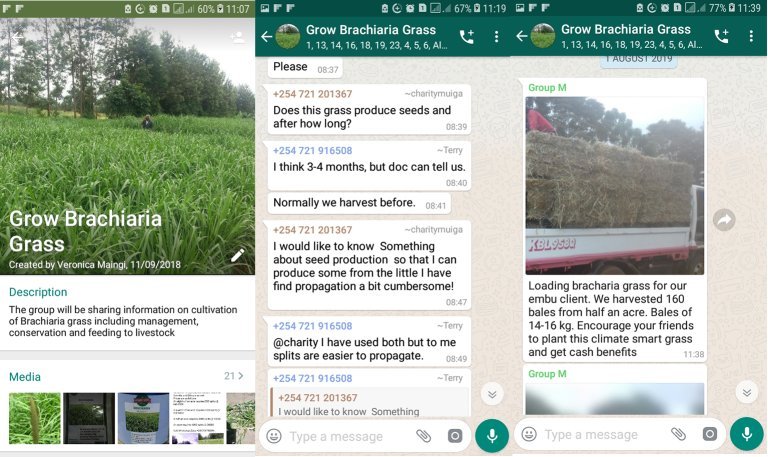
Smallholders are experiencing higher yields
“The aim of InnovAfrica has been to strengthen the adaptive capacity of smallholders in Sub-Saharan Africa, thus contributing to their productivity, profitability and nutritional benefits while at the same time reducing environmental impacts,” project coordinator Dr. Udaya Nagothu Sekhar says.
For the past four and half years, the InnovAfrica project team has tested, integrated and disseminated sustainable agriculture intensification systems suitable to smallholders. In addition, farmer led demonstrations of various technologies have been conducted, among others climate-smart maize- and millets-legume cropping systems and Brachiaria forage systems.
The smallholders who have adopted diverse maize-legume and Brachiaria fodder grass production are now experiencing higher yields.
“We’ve seen good results, partly due to our particular focus on the farmer led field demonstrations of maize-legume/millet-legume and Brachiaria-livestock forage grass systems,” Dr. Nagothu says.
“During the course of the project, we’ve actively engaged more farmers to take up diverse cropping systems, and to improve the value chains of these systems. We are confident that the success is a result of our integrated approach and capacity building of farmers,” he adds.
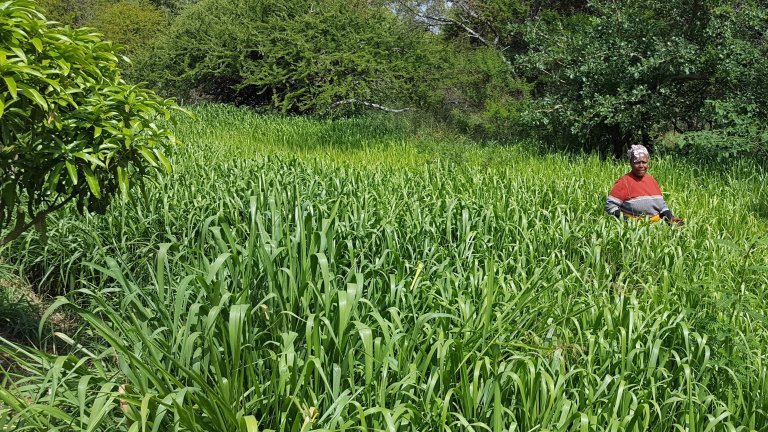
Six multi-actor platforms established
In the project, stakeholders consisting of policy makers, farmer organizations and both private and public SME’s have been actively engaged through six Multi Actor Platforms, one in each case study country. The MAP participants have been involved in everything from monitoring the progress of different project innovations to engaging in field visits. They have also contributed to the upscaling of InnovAfrica’s results through providing policy input and linking the results to other related initiatives.
“In the Malawian MAP, we were able to bring in everyone from the value chain, i.e., farmers, traders, transport and researchers such as myself,” project partner Professor Mufunanji Magalasi says. “Bringing together representatives from production, logistics and research was very valuable in terms of experience and knowledge exchange, and a good way of harnessing resources for sustainable development.”
MAP member Mokoena Lebohang from South Africa, who was recently recognized as the country’s best agricultural adviser, agrees.
“Engaging representatives from the entire value chain in a MAP is a good approach, and for me, very interesting in terms of how even small efforts can give good results. The farmers who engaged in my trainings based on input from InnovAfrica, were able to upscale the initiatives, and experienced improved household income,” he says.
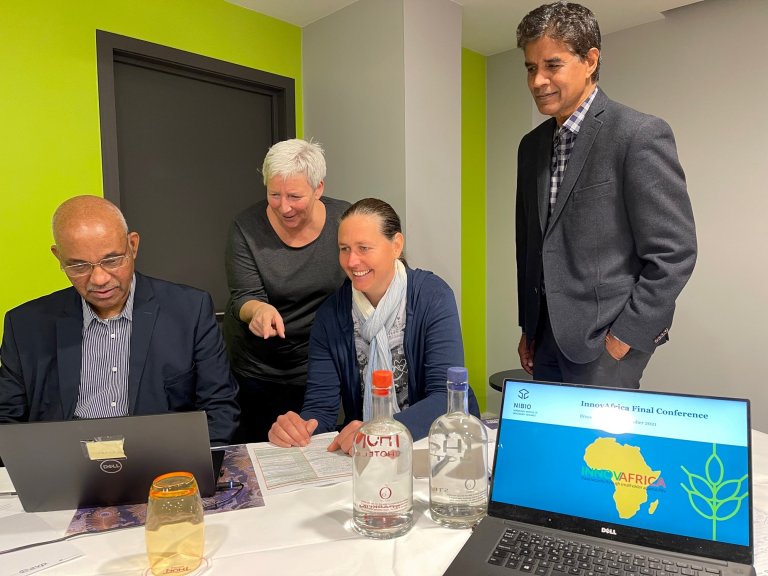
Innovative extension and advisory services
During the course of the project, work in the MAPs has been combined with taking institutional approaches, e.g., toward seed delivery systems, along with introducing three selected innovative extension and advisory services; Village Knowledge Centres (VKCs) in Kenya and Rwanda, Integrated Farm Plan and Farmer to Farmer Exchange.
These novel and innovative extension and advisory services have allowed for knowledge exchange between experts and more than 60,000 smallholders, among other things via ICT-based dissemination platforms which make use of smart phone technology and social media such as WhatsApp.
In addition, hundreds of farmers have visited the VKCs to seek information and support for the establishment and management of new crops. By May 2021, more than 9000 smallholders had been supplied with Brachiaria grass seeds through the Kenyan VKC alone.
The position of women in agriculture must be strengthened
Although gender equality is established in policies and laws in several of InnovAfrica’s case study countries, the implementation of these policies and reinforcements of legislation are sometimes lacking. Analyses carried out in InnovAfrica have revealed that cultural values and discrimination work against women in agriculture. Women farmers do not have adequate access to production resources and agricultural services such as land, inputs, credit and extension.
“We’ve found that women farmers often have very heavy workloads. There is definitely a substantial need for more just division of labour between men and women in these countries, as well as the introduction of labour-saving agriculture technologies,” Dr. Nagothu says.
The recommendations from InnovAfrica put emphasis on strengthening the position of women in agriculture the Sub-Saharan Africa. To do this, different actions at different levels need to be taken. Among other things, it is important to empower rural women at an individual level, and men at a household level need to be made aware of and accept gender equality and shared workload.
“A culture change at a community level is necessary, as well as a change in customary law and norms that discriminate against women, e.g., prevent them from property ownership,” Dr. Nagothu says.
“Furthermore, gender equality must be a part of national policy and legislation and subsequently acknowledged and implemented by formal institutions and organizations in the country in question,” he adds.
Final conference held in Brussels and Nairobi
Speaking at InnovAfrica’s final conference on October 12, was Professor Agnes Mwang’ombe from the University of Nairobi who has led InnovAfrica’s Advisory Board. Dr. Mwang’ombe said that the project has succeeded in exploring all possible avenues for scaling and institutionalization of the innovations, e.g., farmer led experiments, stakeholder engagements and policy dialogues.
“InnovAfrica has generated substantial information, knowledge and technologies,” she said. “This will help African smallholder farmers for many years to come.”
Although the InnovAfrica project is coming to an end, the farmer trainings will continue in the time to come.
As far as the upscaling of Village Knowledge Centres is concerned, which provide timely and necessary information for a large amount of African smallholders, partnerships with NGOs and the private sector have been established to ensure their existence in future.
Contacts

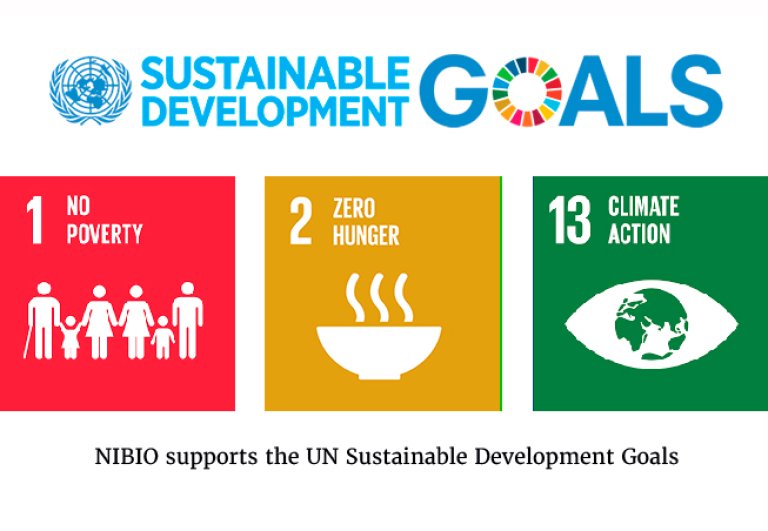
InnovAfrica key facts
InnovAfrica (2017-2021) is an EU Horizon2020 funded research project that has aimed to improve food nutrition security in Africa by integrating sustainable agriculture intensification systems and innovative institutional approaches with novel extension and advisory services. This has been achieved by enhancing capacity building and knowledge sharing in smallholder farming in Sub-Saharan Africa through a strong EU-Africa Research and Innovation Partnership.
InnovAfrica has been implemented in Ethiopia, Kenya, Malawi, Rwanda, Tanzania and South Africa with twelve pilot sites, each of them strategically selected to cover diverse agroecological zones. The objective has been to test, integrate and disseminate potential sustainable agriculture intensification systems suitable to smallholders.
InnovAfrica website: www.innovafrica.eu
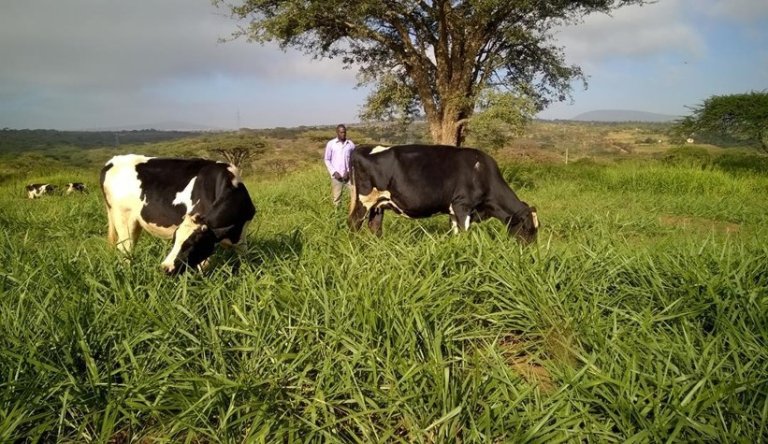
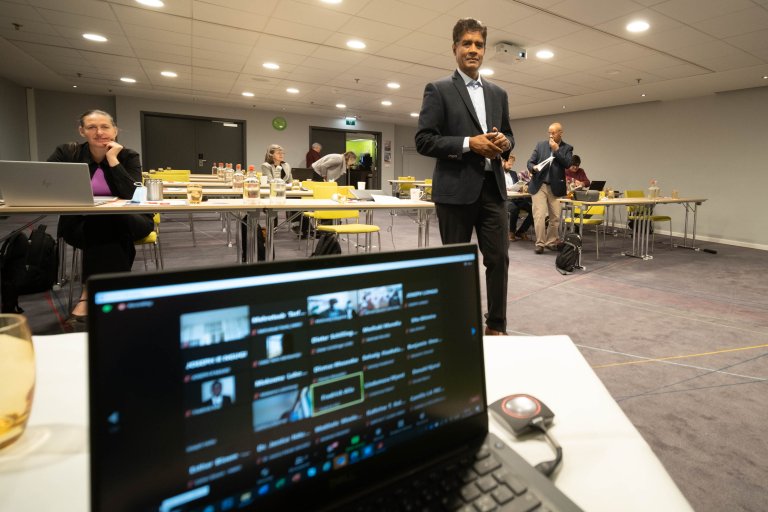
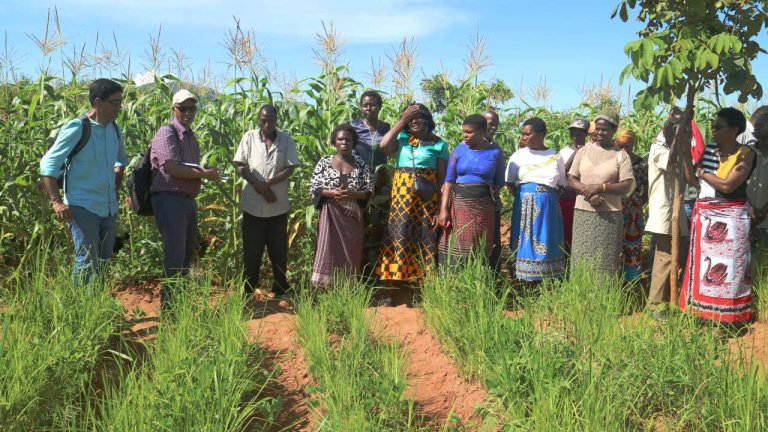
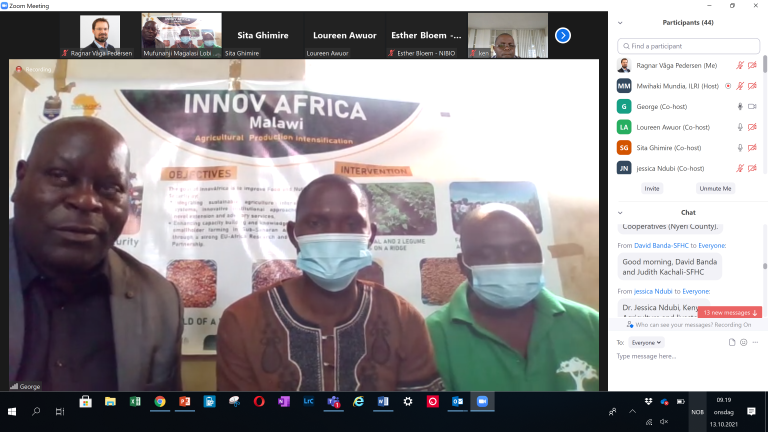
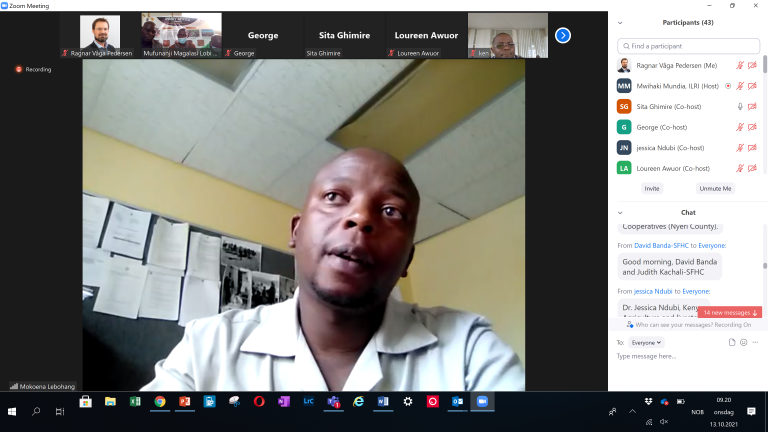
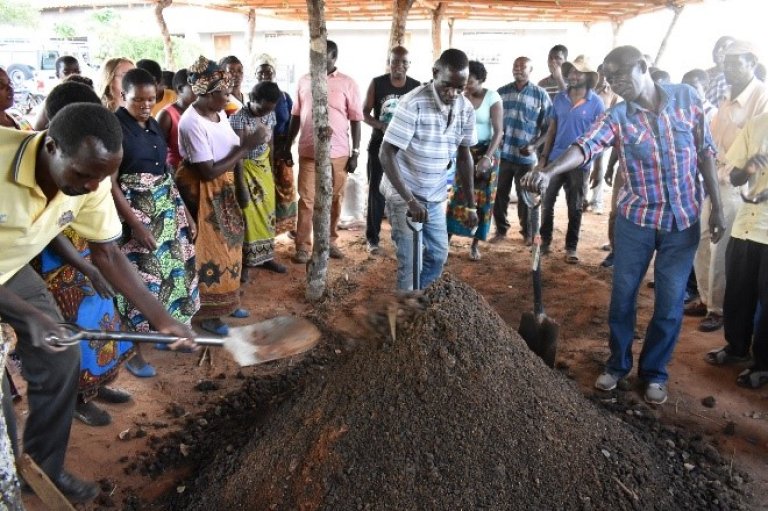
Several InnovAfrica-farmers participated in the final conference, and a new film highlighting some of their experiences was shown. Here a Kenyan farmer is deliberating on his success with Brachiaria.
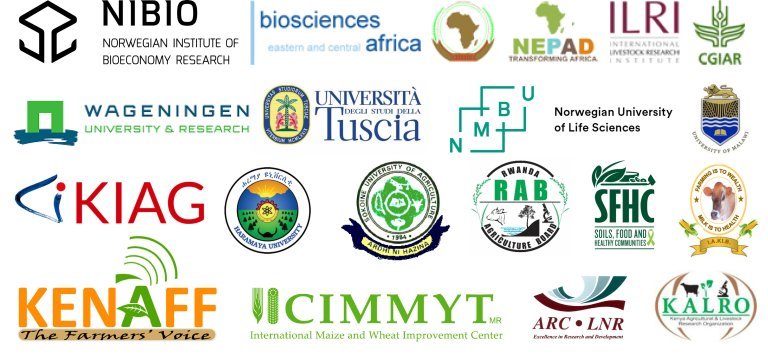
Contacts


